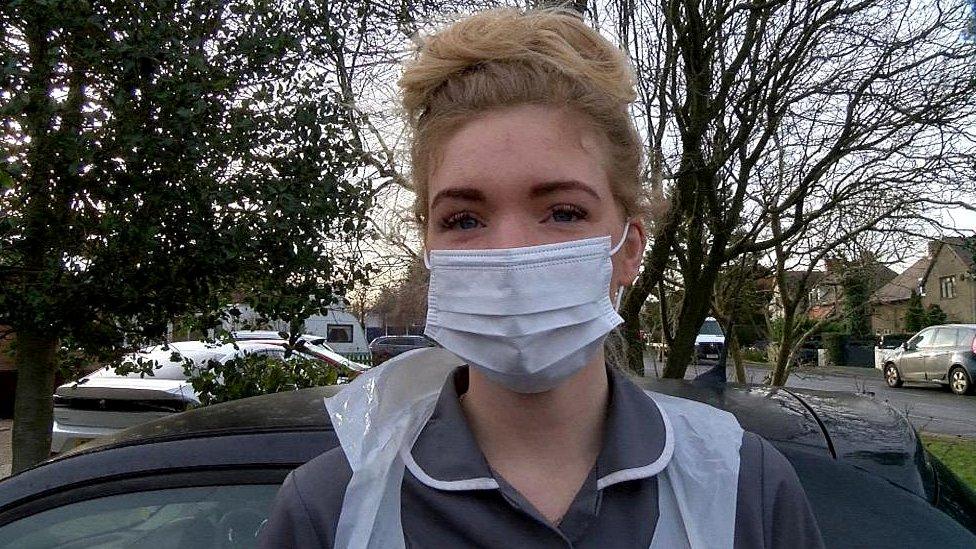'My addiction experience helps me to help others'
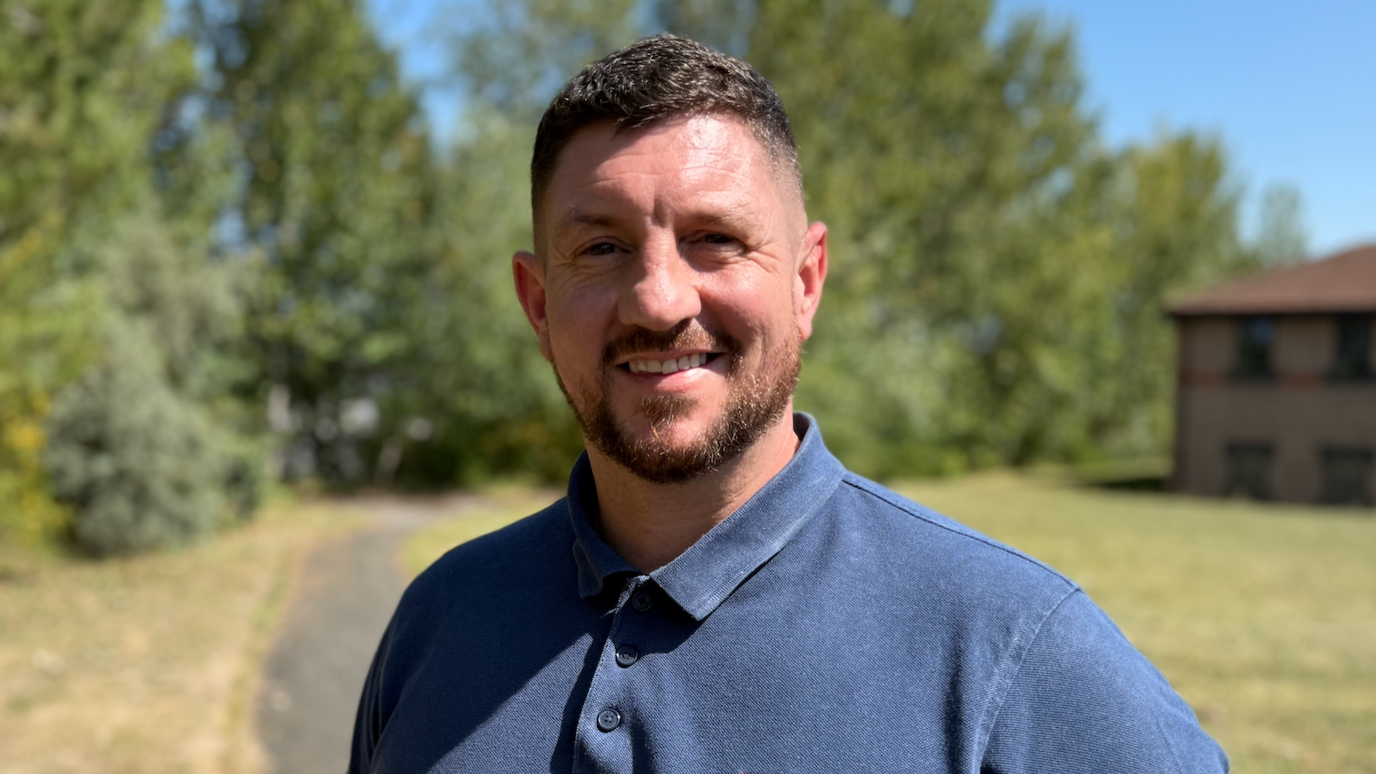
Colin Burns spent 20 years struggling with alcohol and drug abuse
- Published
A man whose alcohol and drug addiction left him with liver disease and a 50% chance of survival has returned to work for the recovery team which "saved his life".
Colin Burns, of Sunderland, spent two decades in and out of jobs and struggled to stay sober after leaving the armed forces aged 19.
The 47-year-old, who has since recovered from his addiction, retrained in care and now works for the South Tyneside Adult Recovery Service (STARS) in South Shields.
Provider Training in Care, which helps people like Mr Burns into the sector, said giving them second chances could help alleviate the national shortage of carers.
"Life was up and down, like any addiction is, spiralling out of happiness and sadness," Mr Burns said.
"I was in addiction for over 20 years, on and off... it came to a head when I went to hospital, and they basically said it was 50/50 [whether he would survive]."
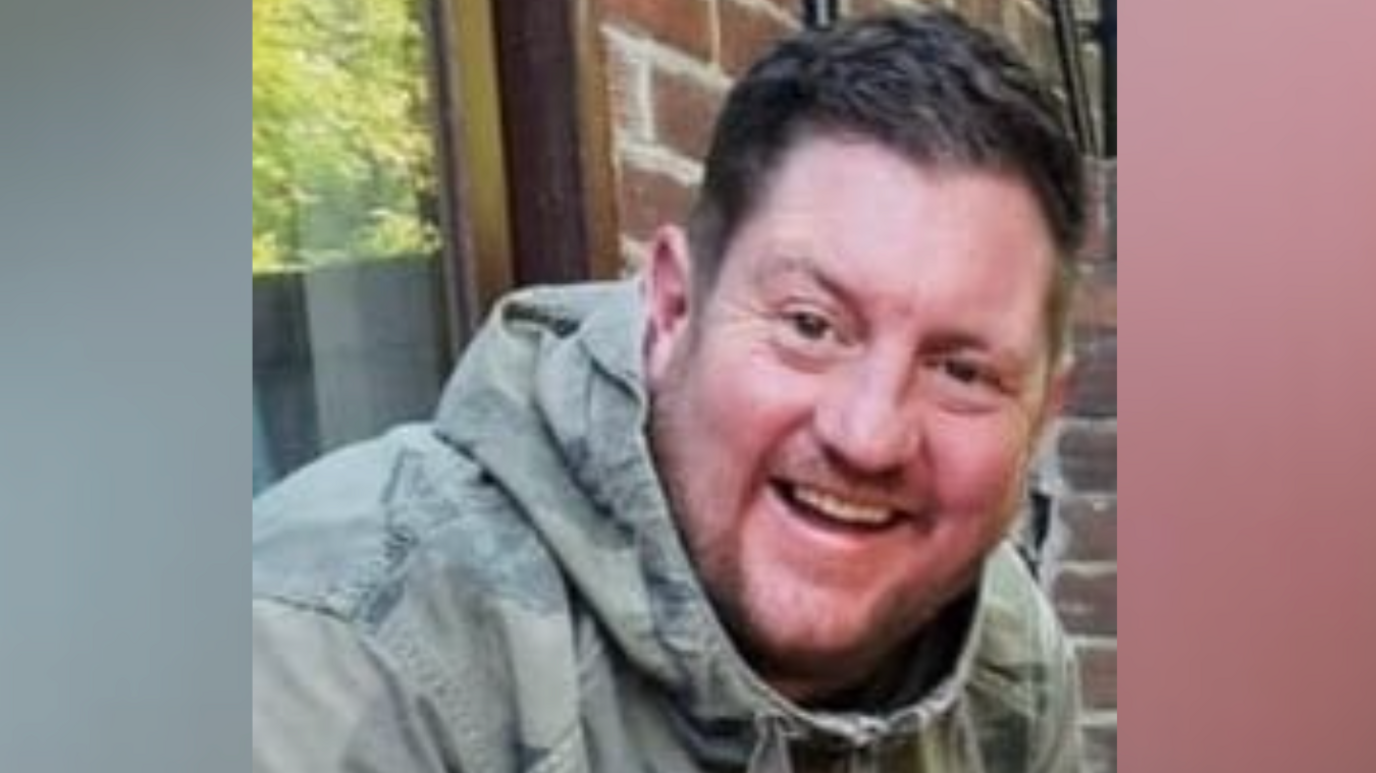
Mr Burns said he experienced intense highs and lows from addiction
He was diagnosed with stage three liver disease, brought on from his alcohol consumption, which can require a liver transplant in some cases.
Seeking support, Mr Burns was introduced to STARS, where he was coached into recovery.
After returning as a volunteer, he was offered a job as a recovery co-ordinator, where he was able to help others with their dependencies thanks to his life experience.
He explained: "You've got someone [a support worker] who's been there... it's saved my life."
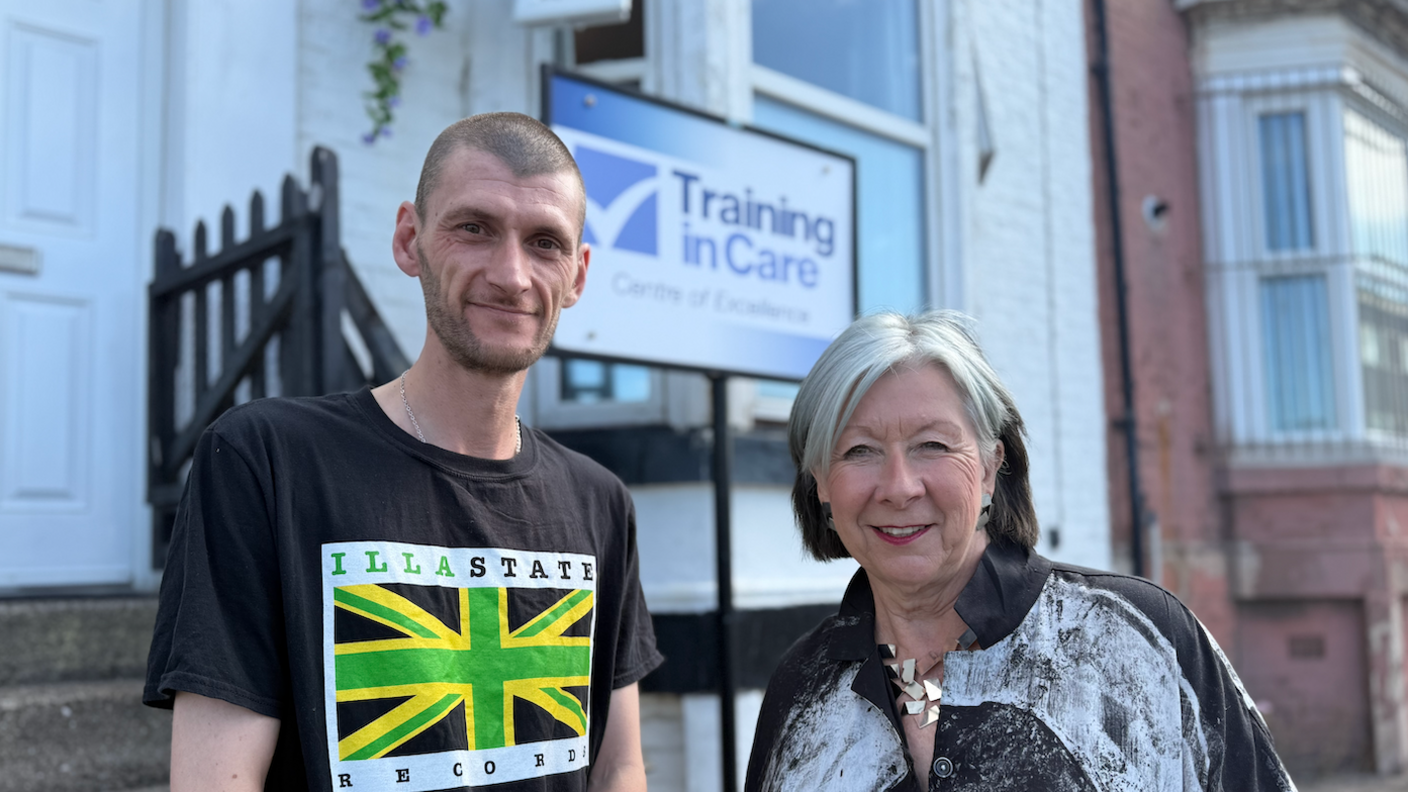
Paul Georgeson, from South Shields, with Dr Angela Brown, who recently awarded him with his level two diploma certificate
Paul Georgeson, 42, has also retrained in the care sector.
He said he had lived under a tree for five months after becoming homeless in May 2024.
"It was bleak," he said. "Nobody should be there from any walk of life."
After managing to find help, he was later led to Training in Care, a skills centre in South Shields which helps people find employment in the sector.
He said he wanted to help people in their late teens and early 20s get "off the wrong path and on to the right one".
"I never thought I'd be here," he said. "It just shows it's never too late."
'Understaffed' sector
Dr Angela Brown, chief executive of Training in Care, said it was vital those with "lived experiences" were encouraged into working in care as they could "support people in a much better way".
She said: "We [the industry] are massively understaffed, we are are desperate for more care workers."
She said the skills the sector needed were from "people who have been through it", rather than just academic knowledge.
Since 2000, her centre has helped more than 3,000 people into the care sector, but she would like to see that figure rise further by helping former drug and alcohol abusers into work.
"The majority of people we work with are people who have no self-belief... we get them to believe in what skills they have, looking at their life experiences we can capture and demonstrate to them that they're able, and they're important."
A spokesperson for the Department for Work and Pensions said the government was "committed to supporting people with drug and alcohol dependency to recover and move into fulfilling employment", and had a "number of targeted programmes in place".
Follow BBC North East on X, external, Facebook, external, Nextdoor, external and Instagram, external.
Get in touch
Do you have a story suggestion for BBC North East & Cumbria?
Related topics
More stories about the care sector
- Published31 July
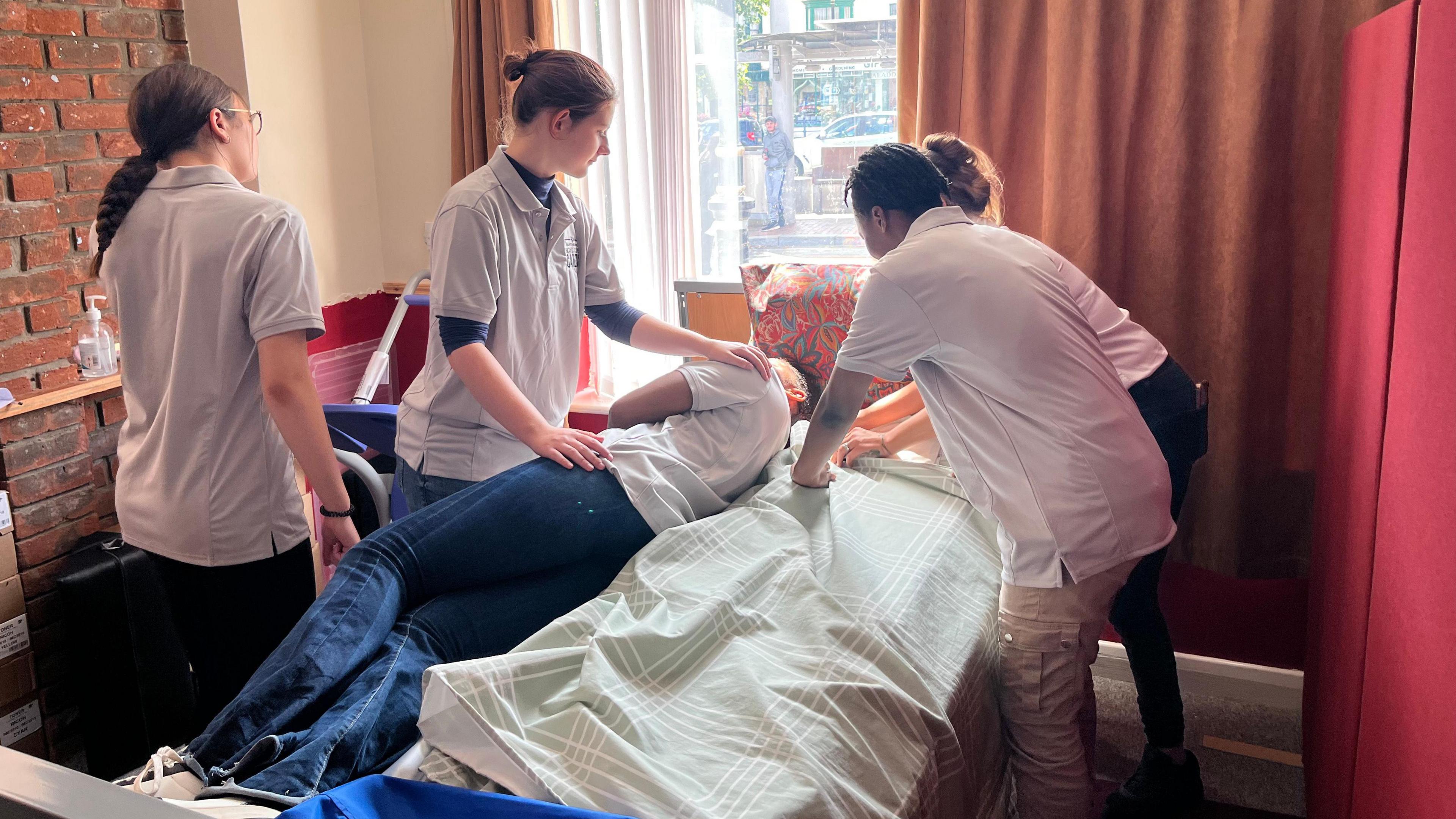
- Published13 March 2023
